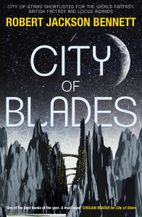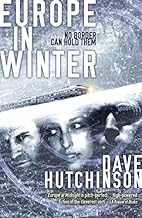Well I think they have all been written with an understanding that the world works a certain way, but it need not do so. Stories make the world. We should all tell better ones...
The Good Immigrant Edited by Nikesh Shukla
From the back - "What's it like to live in a country that doesn't trust you and doesn't want you unless you win an Olympic gold medal or a national baking competition." This Unbound book was inspired by a comment on a Guardian article (don't they always tell you to never read the comments?) The commenter wondered why a more prominent author wasn't interviewed in a piece by an Asian journalist who had interviewed five or six people of colour. The commentator supposed that they were all friends of the journalist just because they were mostly Asian too.So the editor got together twenty writers of colour to talk about what it felt like to be a person of colour in modern day Britain. This was written before the Referendum though, so I can only imagine that it has got worse.
Hence there are personal stories about anglicisation of names, the treatment of Muslims at airports, what it felt like to have no good role models and therefore to choose Kendo Nagasacki as one, why stories have to be about white people and many more.
This is good writing and it is important writing. Representation is massively important and in today's social climate needed more than ever. I was very happy to support this on Unbound and glad it was such a great read, as well as being something I'd like to place in the hands of nearly everyone. Read this, it's important, I'd say...
If you want an idea of the quality & type of writing then you can read this piece by Riz Ahmed.

City of Blades by Robert Jackson Bennett
What does it mean to be a soldier? This question lies at the heart of the second book from Robert Jackson Bennet in the series. A glittering, multi-faceted gem of a book it is too. I seldom invest in series, the author has to be just damn good to get me to buy more than one book in the same world and few make the mark. Bennett is one of them (Dave Hutchinson is another - see below). City of Stairs was bold, it felt fresh, it ticked all the epic fantasy boxes that I wanted to be ticked (caveat - I'm not a massive epic fantasy fan, you have to do something special in the genre to make me want to read it) and it was just a rollicking good read.
So I approached City of Blades with some nerves - I knew Bennett hadn't planned to write a sequel, I knew it wasn't going to be about exactly the same characters (although Mulaghesh is the main protagonist - and a fabulous kick-ass character too) and, although set in the same world, wasn't going to be in enchanting Bulikov.
Once I'd read a few pages any reservations I had were blown away. Bennett has the knack of grounding you in the story, you are immediately with the characters, absorbing the sights, sounds and smells of the world he's transmitting into your brain via the written word. It's a skill I am totally envious of.
General Turyin Mulaghesh has quit but is persuaded to come back for one last mission on behalf of now PM Ashara. The mission? To find a missing member of the government, someone who was investigating a new type of ore found beneath Voortyashtan, the home city of the former god of war and death. And so Bennett pulls out of the hat a second, brilliantly imagined, city in the same world as City of Stairs with an engaging plot, a new cast, with some cameos by old favourites, and a book that builds up to a page-turning second half.
I highly recommend this series to all, but especially to fantasy fans

Europe in Winter by Dave Hutchinson
To reveal any of the plot would just involve massive spoilers at this, the third book, so suffice to say we are back with Rudi and the Coureurs and we get to explore some of the loose ends of the previous two novels and get engaged in exciting new plots and plot twists.
If you haven't read the first two books then you need to remedy that! Set in a fractured Europe where the EU has mostly failed and the countries of Europe are breaking into ever smaller kingdoms and polities these books have a thriller/spycraft feel but with a healthy dose of near-future SF.
Hutchinson is a master of the splintered novel with a great many moving parts that in a lesser writer's hands would feel chaotic and random. If you've got this far however you'll know to trust that everything, all the various twits, turns, apparent digressions (that aren't) sub-plots and minor characters are there for a purpose that makes a coherent and quite brilliant whole.
I love that Hutchinson explores parts of Europe that are under-represented in other fiction - places like Poland and Estonia. I really enjoyed the Polish section as I've spent some time in that country working and Hutchinson's description gelled very much with that.
The fact that the first two books made the Clarke Award shortlist should tell you that this is an author to watch and watch I will.
Another highly recommended book.
No comments:
Post a Comment